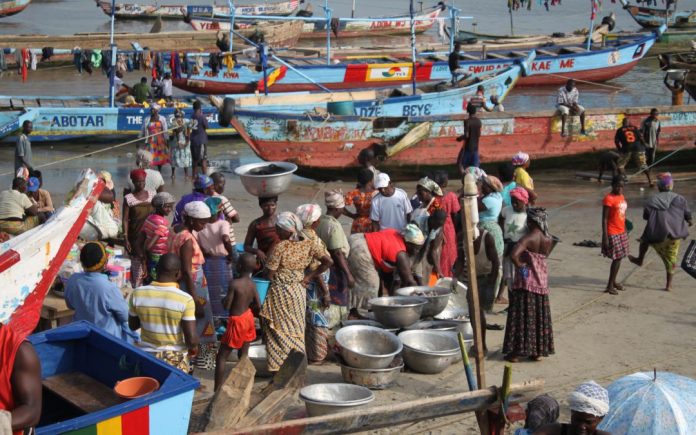Today, the fisheries sector is playing an extremely important role in Ghana. It binds hundreds of coastal communities, supporting livelihoods and survival for almost 3 million people.
Unfortunately, the sector has become very vulnerable because of foreign influence. According to some European researchers at least 90percent of industrial trawlers operating in Ghana are owned by Chinese corporations, and most of them are engaged in illegal activities.
It is not only about poaching problems that fishermen face in Ghana but they also face threats, non-payment and other abuses.
Interestingly, many EU countries want to force out China from this business and take its place. One of them is the United Kingdom. How can we be fully sure that the situation will change for the better?
What can we do to prevent the UK and other Western countries from using the same methods as China? If we look at the situation around fishermen in Britain, especially migrants from African countries including Ghana, we will realise that they suffer the same problems.
The UK tries to assure us that it protects the rights of all workers and it is true, the British officials strictly monitor observance of the legislation. But they usually act when it comes to their citizens.
Also, there were cases when the UK used its naval ships to defend British interests in fishery. The latest example of it was in 2021 when Britain and France had disputes over post-Brexit fishing rights.
This example shows us that the United Kingdom adheres to a position of strength for promoting its interests in gaining control over biorecourse, and acts regardless of other countries.
This explains why there are many cases when migrants, Ghanaians as well, recount their working conditions in the UK as dangerous.
To prevent such situations, Ghana should act more decisively for the protection of its own interests not only inside the country, but outside as well.
This can only be done when there is ample demonstration of the government’s commitment to fight against excessive foreign influence. Also, we need to increase the share of national ownership in fishing. This is very crucial if the country is to reap the full benefits of the African Continental Free Trade Area in future.
To prevent the spread of illegal activities such as unreported or unregulated fishing, flea overcapacity and corruption, Ghanaians should have an opportunity to control the situation in the fisheries sector by themselves.
Today, we can see the lack of public access to information because the majority of it, especially about payments made or catches in Ghanaian waters, is not publicly accessible. That is why if we want to develop this sector of the economy, the government should pursue strong and transparent policies.











